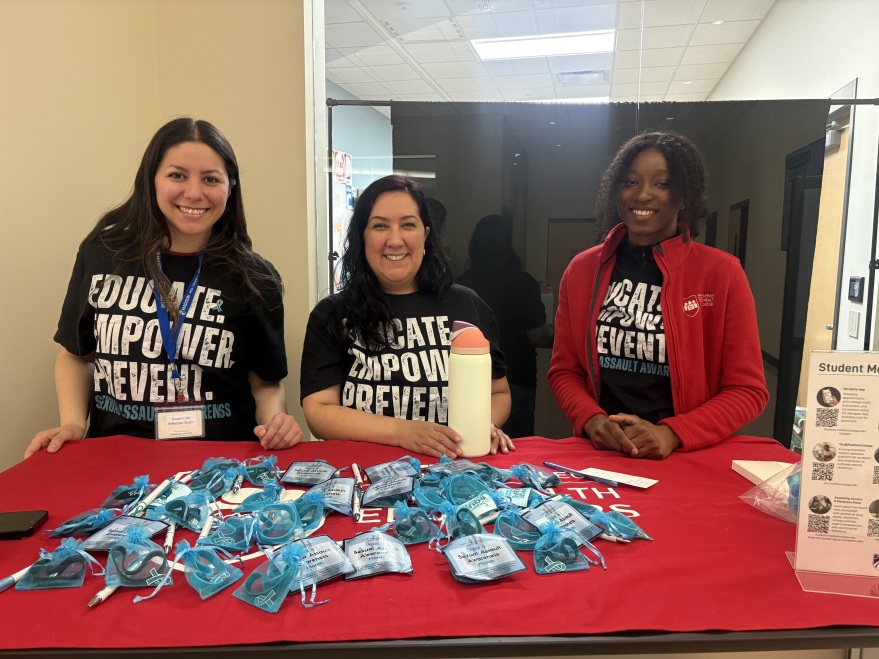At 40 years of age, Carrie Conlin learned she had breast cancer. Doctors diagnosed her after a routine mammogram in which they detected tumors.
Conlin is a Senior Advisor at the Reedsburg campus. As a mother of two daughters in school, she says she was determined to “continue to have every semblance of normal,” even working on the same days as her morning radiation treatments. Conlin’s life was saved due to the decades of research funded by donations received through programs like Lee National Denim Day, which will take place on Friday, October 5 of this year.
In her thirties, she heard other women’s stories about having the mammogram exam and upon inquiring on when to get one, she learned that her employer’s health insurance covers exams at 40 and then every two years thereafter.
When asked the question, how much of a factor early detection played in her recovery, she matter-of-factly responded: “Life or death.”
Such a serious prognosis requires patients to make some tough decisions regarding means of treatment. Conlin, from the get-go declared, “Bottom Line: I have to survive this.” She was ready to bring out “the big guns” and tend to “business as usual.”
After treatments prove effective, recurrence is the next issue cancer patients have to worry about. Conlin shared her feeling on the matter, recalling a discussion with her husband: “When his back hurts, he thinks his pants are too tight…” whereas if she were to have back pain, it’s nearly impossible not to think the worst, cancer.
At her ten-year check-up her oncologist inquired “how are you feeling?” It seems like a normal question, but when you recognize it as the only way to detect recurrence, it’s disheartening. If a remission patient becomes symptomatic, that’s basically it – it’s already too late to rehabilitate. Since her diagnosis, protocols for treating breast cancer have evolved, but secondary detection options are still non-existent.
“I’m cured, so I can’t really complain; but if I were to do it again, I’d go to a specialty center like world-class Carbone Cancer Center here in Madison.” Although her treatment at her rural hospital was a success, the idea of a having a tumor board (a team of doctors collaborating in a group-setting to construct the most effective treatment plan) seems more efficient than having the components set in to place one doctor at a time, “in pieces,” as Conlin put it.
Originating in 1996, Denim Day has raised more than $86 million for the fight against breast cancer. Madison College is among the 100 most successful Denim Day teams in the country, raising over $2,800 last year. The American Cancer Society will apply the funds to the implementation of life-saving screenings across the nation. Proceeds will also go towards treating, curing, and ensuring access to mammograms and free support to those afflicted.
Students can support the cause by wearing pink and your favorite pair of jeans on October 5, Wednesday October 3 – Friday October 5 from 9 a.m. to 3 p.m. Truax will be collecting donations in the cafeteria. Donations are also accepted online at www.denimday.com with the Madison College ID number 225591.
For the first time, pink t-shirts containing the college name and the 2012 Denim Day logo will be available for purchase: $12 prior to the event, $15 on the day of. You can place your order by contacting a member of the Denim Day committee or by visiting one of the campus offices. If you have any questions, contact a Denim Day Planning Committee member. Special thanks to Ellen Hustad, Committee Chair and Cindy Bowen, Regional Campus Liaison for leading the quest to save the lives of those touched (now and in the future) by breast cancer.


























